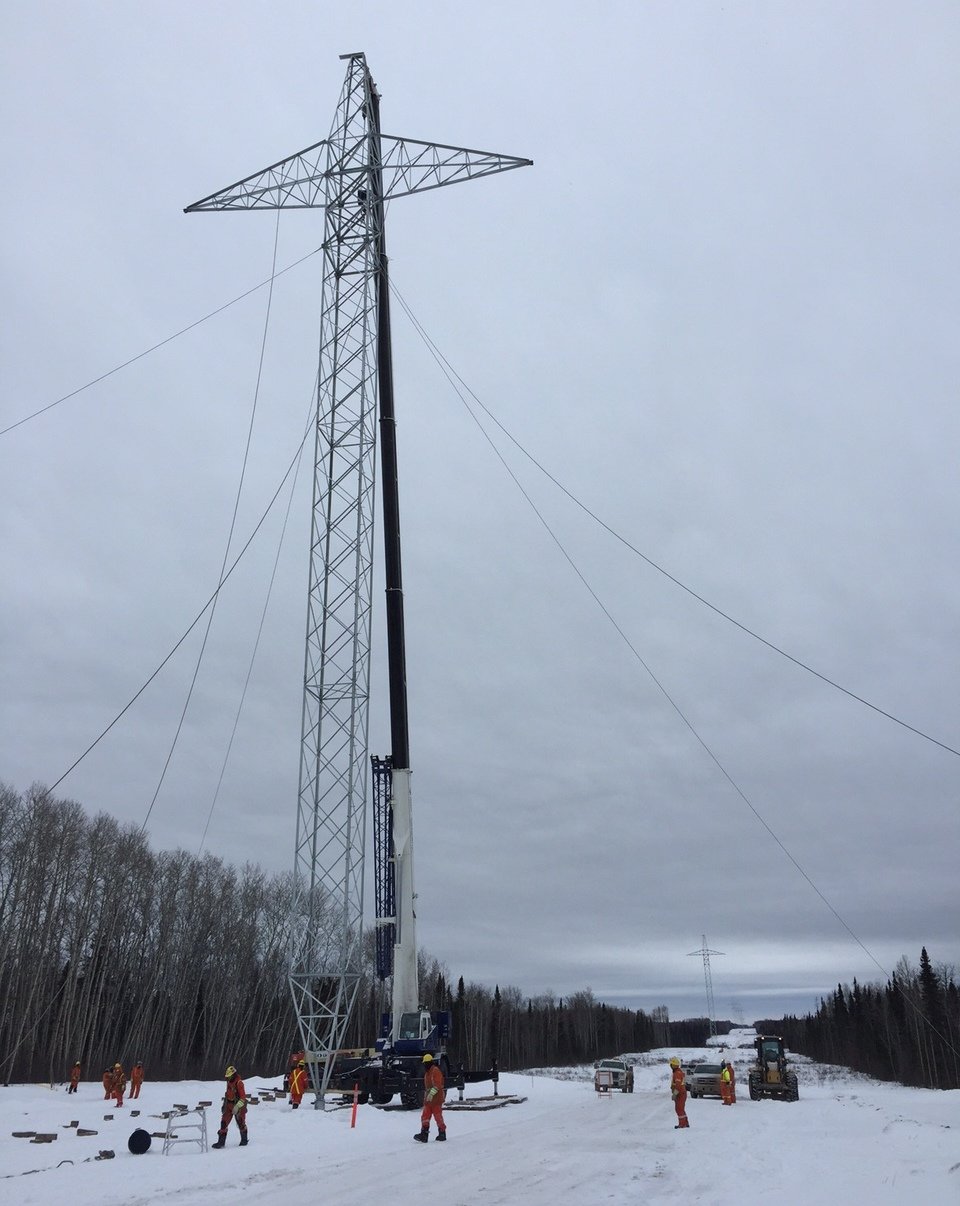Bipole III work progressing, says Hydro
Advertisement
Hey there, time traveller!
This article was published 02/04/2016 (3454 days ago), so information in it may no longer be current.
Many patches of land where the Bipole III route will run through southeastern Manitoba have yet to be prepped but that hasn’t stopped the first towers from being installed elsewhere.
Fifty-two towers have been erected to date, all along the northern reaches of the transmission route, Manitoba Hydro spokesperson Bruce Owen said in an email Wednesday. The first tower was readied on Mar. 11 near Thompson.
The public utility explained that preparing sections of the route in southern Manitoba will resume once site conditions are dry, possibly by mid-May. Foundations will be installed in those areas, with tower assembly to follow in subsequent months as materials arrive.

Sixty percent of anchors and foundations along the entire route have been set, said Hydro.
Work was ongoing this winter in southern Manitoba to install anchors and prepare the foundations for the towers’ eventual placement. Local farmers were involved in at least three protests this winter where they attempted to impede the contractors’ progress because the landowners said these workers were not following proper biosecurity, a claim Hydro refuted.
The 1,384 km route is set to cross south of Niverville, curve north through the RM of Hanover and RM of Tache before passing the Trans-Canada Highway to enter the RM of Springfield and culminating at the Riel Converter Station, east of Winnipeg.
Though not all landowners have reached voluntary easement agreements with Hydro, the Crown corporation says they have acquired legal access to all land for construction and maintenance of the transmission line either through negotiated agreements or expropriation, the latter which involves Hydro now owning the land in question.
